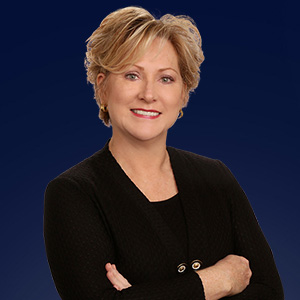NJ Domestic Workers’ Bill of Rights Law Goes Into Effect Soon – Prepare Now!

May 1, 2024
Organizations (including non-profits) that engage workers to provide certain domestic and home healthcare services, or that place such workers in residences, in New Jersey need to prepare for the sweeping employment-related changes that will go into effect on July 11, 2024, by the New Jersey Domestic Workers’ Bill of Rights Act (the DWBRA).

Follow Us on LinkedIn
Stay updated with our latest news and insights.
“Domestic Workers” Covered by the Law
The new law covers nearly any person who works in a residence and provides services such as:
- Caring for a child
- Serving as a companion or caretaker for a sick, convalescing, or elderly person, or a person with a disability
- Housekeeping or house cleaning
- Cooking
- Providing food or butler services
- Parking cars
- Cleaning laundry
- Gardening
- Personal organizing
Obligations to Domestic Workers
A business that engages a domestic worker:
- Must have a written contract with each domestic worker;
- The contract must contain certain minimum information about the terms and conditions of the engagement;
- The contract may not require arbitration, may not prohibit the worker from disclosing confidential information, and may not prohibit the worker from providing domestic services to a competitor;
- The worker, if an employee of the organization, must have meal and rest breaks during the workday, subject to some exceptions;
- The worker, if an employee of the organization who lives at the client’s residence, must have off at least 24 consecutive hours once a week;
- The worker, if an employee of the organization, cannot be fired without a two-week notice (or four-week notice if the employee lives at the client’s residence), except in instances of “significant misconduct”;
- The business cannot, in certain circumstances, monitor the employee; and
- The business, and any referral agency, must provide each worker with a notice about the worker’s right to complain to the New Jersey Department of Labor (NJDOL) and to sue.
Coordination is Needed
Organizations will need to coordinate with clients and their families, for example determining how to provide required meal and rest breaks and whether they occurred. Changes to client contracts are nearly a certainty. Organizations likewise will not be able to simply accept a client’s decision to end a particular worker’s assignment, but will need information from the client to determine whether the reason amounts to “significant misconduct” as defined by the DWBRA.
Determining Who is an “Employer”
Coverage of certain business activities is not clear under the law. Businesses that engage domestic workers as independent contractors must determine whether the business relationship will be considered “employment.” Organizations that procure or refer home healthcare workers must determine whether they are subject to the employment-related requirements of the law. And businesses will need to determine whether their clients might be considered “employers” under the law.
Violations & Legal Damages
Aggrieved individuals may complain to the NJDOL or file suit. The NJDOL may levy fines and penalties, and obtain relief such as backpay, for non-compliance against the organization and, potentially against the client of the organization in circumstances where the client exercises sufficient control over the terms and conditions of the healthcare worker’s employment. A successful litigant may be awarded remedies, such as backpay and employment reinstatement, and shall recoup reasonable attorneys’ fees.
Extension of Other Laws
The law also extends coverage under New Jersey’s anti-discrimination law and its mini-OSHA workplace safety law to domestic workers, and such workers may now be eligible for unemployment insurance, short-disability benefits, and family leave insurance benefits. Previously, some employees providing “domestic services” were excluded from the scope of these laws.
Because these workers can now sue for discrimination, the same as any other employee, businesses should have in place non-discrimination policies. Referral agencies will need to take extra care about client requests that discriminate on the basis of color, creed, religion, nationality, sex, or any other legally protected characteristic. Organizations should also consult with their insurance broker about the changes the law will make to the scope of the New Jersey workers’ compensation law.
How We Can Assist
The new law will require covered businesses to take a number of actions. We can assist with:
- Policies and procedures and required disclosures
- Template employment agreement for domestic workers
- Revising or preparing client agreements containing required provisions
- Employee/independent contractor determinations
- Regulatory guidance
Stay Tuned for Our Webinar
Because of the far-reaching nature of these changes, the firm is holding a special webinar to help guide impacted organizations covered under the law.
The firm will explore the NJ Domestic Workers’ Bill of Rights Law in detail at a webinar on May 30, 2024 at 1:00pm. (Watch the webinar on demand now!)
For assistance with your organization’s compliance initiatives under the new law, contact:
Jay Sabin, Esq., Member, Labor and Employment Practice, at jsabin@bracheichler.com or 917-596-8987
Lani M. Dornfeld, Esq., CHPC, Member, Healthcare Law, at ldornfeld@bracheichler.com or 973-403-3136
About Brach Eichler LLC
Brach Eichler LLC is a full-service law firm based in Roseland, NJ. With over 80 attorneys, the firm is focused in the following practice areas: Healthcare Law; Real Estate; Litigation; Trusts and Estates; Corporate Transactions & Financial Services; Personal Injury; Criminal Defense and Government Investigations; Labor and Employment; Environmental and Land Use; Family Law; Patent, Intellectual Property & Information Technology; Real Estate Tax Appeals; Tax; and Cannabis Law. Brach Eichler attorneys have been recognized by clients and peers alike in The Best Lawyers in America©, Chambers USA, and New Jersey Super Lawyers. For more information, visit www.bracheichler.com.
This alert is intended for informational and discussion purposes only. The information contained in this alert is not intended to provide advice, and does not constitute legal advice or establish the attorney/client relationship by way of any information contained herein. Brach Eichler LLC does not guarantee the accuracy, completeness, usefulness or adequacy of any information contained herein. Readers are advised to consult with a qualified attorney concerning the specifics of a particular situation.
More Labor and Employment, Healthcare Law, Litigation…
Related Practices: Labor and Employment, Healthcare Law, Litigation
Related Attorney: Jay Sabin, Lani M. Dornfeld
Related Industry: Healthcare














